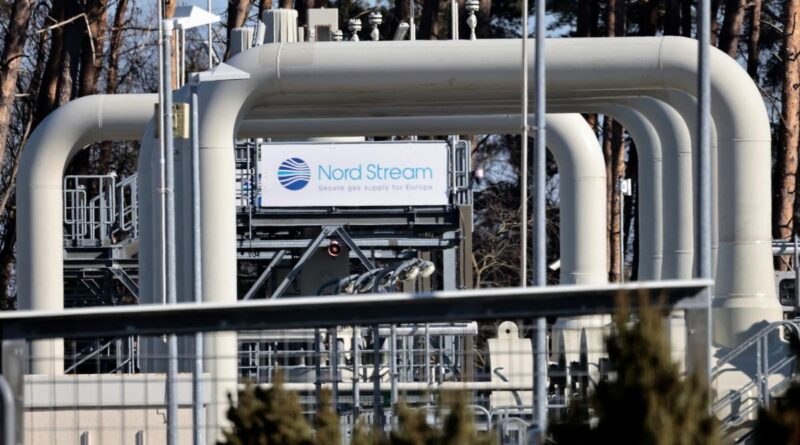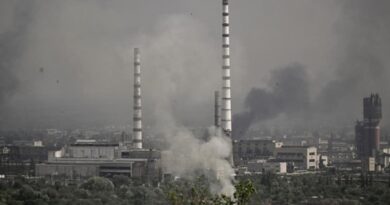Germany risks recession as Russian gas crisis deepens
Germany faces a certain recession if Russian gas shampoo stops fully, an industrial agency warns on Tuesday, and Italy said it would consider offering financial support to help companies recharge gas storage to avoid deeper crises in winter.
European Union countries from the Baltic Sea in the north to the south have outlined the steps to overcome the supply crisis after the Russian invasion of Ukraine placed energy in the heart of the economic battle between Moscow and the West.
EU relies on Russia as much as 40% of its gas needs before the war – rising to 55% for Germany – leaving a large gap to fill a tight global gas market. Some countries have temporarily responded to reversing plans to close coal power plants.
Gas prices have reached the record level, encouraging the surge in inflation and increasing challenges for policy makers who try to transport Europe back from the economic gap.
The German BDI Industry Association on Tuesday cuts estimates of its economic growth for 2022 to 1.5% of the 3.5% which was expected before the war began on February 24. It is said that the termination of delivery of Russian gas will make a recession in Europe’s largest economy inevitable.
Russian gas is still pumped through Ukraine but at a lower level. Nord Stream 1 pipe under the baltic, a vital supply route to Germany, works only at a capacity of 40%. Moscow said Western sanctions hampered improvements; Europe says this is a pretext to reduce flow.
German Economic Minister Robert Habeck said the reduction in supply was as much as economic attacks and part of Russian President’s plan Vladimir Putin to arouse fear.
“This is a new dimension,” Habeck said. “This strategy cannot be permitted to succeed.”
The slowdown has hampered Europe’s efforts to refill storage facilities, now around 55% full, to meet the target of all EU by 80% in October and 90% in November, the level that will help see blocks through winter if the supply is disturbed further.
On Tuesday, the Italian government announced the initial steps to increase gas storage after the Eni Energy Company (Eni.MI) reported a shortage of flow from Russia for more than a week.
Ecological Transition Minister Roberto Cingolani said in a statement that the government plans to buy coal if necessary use coal power plants to save gas. Cingolani also asked the Snam Gas Network Operator (SRG.MI) to adopt steps to help bring gas stocks around the targeted level for June.
The price of a benchmark gas for Europe is traded around 126 Euros ($ 133) per Megawatt Hour (MWH), under the peak of this year 335 Euros but rose more than 300% from last year.
‘WE HAVE A PROBLEM’
Countries other than Italy, including Austria, Denmark, Germany and the Netherlands, have activated the first early warning stage of the three-stage plan to overcome the gas supply crisis.
Germany Bundesnetzagentur Gas regulator describes the details of a new auction system to start in the coming weeks, which aims to encourage producers to consume less gas.
The Head of the Bundesnetzagentang questioned whether the current delivery of gas would make the country pass by winter. Previously, he said it was too early to express an all-out emergency, or the third stage of the crisis plan.
“As is today, we have problems,” said the President of the Bundesnetzagentang Klaus Mueller on the sidelines of the industrial event.
CEO Markus Krebber Utility Utility The largest Utility of Germany (Rweg.de) Markus Krebber said that Europe has only a little time to be planned.
“How do we distribute gas again if we are completely cut off? At present there are no plans … at the European level … because every country sees their emergency plan,” he told the same event.
European prices that have soared have attracted more liquid natural gas cargo (LNG), but Europe does not have an infrastructure to meet all of its needs from LNG, a market stretched even before the Ukraine War.
Disorders of the main US LNG producers add challenges.
Europe is looking for more pipe supplies from its own producers, such as Norway, and other countries, including Azerbaijan, but most producers have encouraged output limits.
Even small Swedish consumers have joined European allies in triggering the first phase of their energy crisis plans.
The State Energy Agency said the supply remained strong but indicated “to the industrial players and gas consumers connected to the West Swedish gas network, that the gas market was tense and the deteriorating gas supply situation might emerge”.
Sweden, where gas accounts for 3% of energy consumption in 2020, depending on the supply of pipe gas from Denmark, where the current storage facility is 75% full. Denmark activates the first stage of his emergency plan on Monday.
Reporting by Rachel More and Paul Carrel in Berlin, Stine Jacobsen in Copenhagen, Nina Chestney in London, Giuseppe Fonte and Francesca Landini in Rome, Christoph Steitz and Vera Eckert in Frankfurt; Writing by Edmund Blair and Barbara Lewis; Editing by Carmel Crimmins, Mark Potter and David Gregorio




